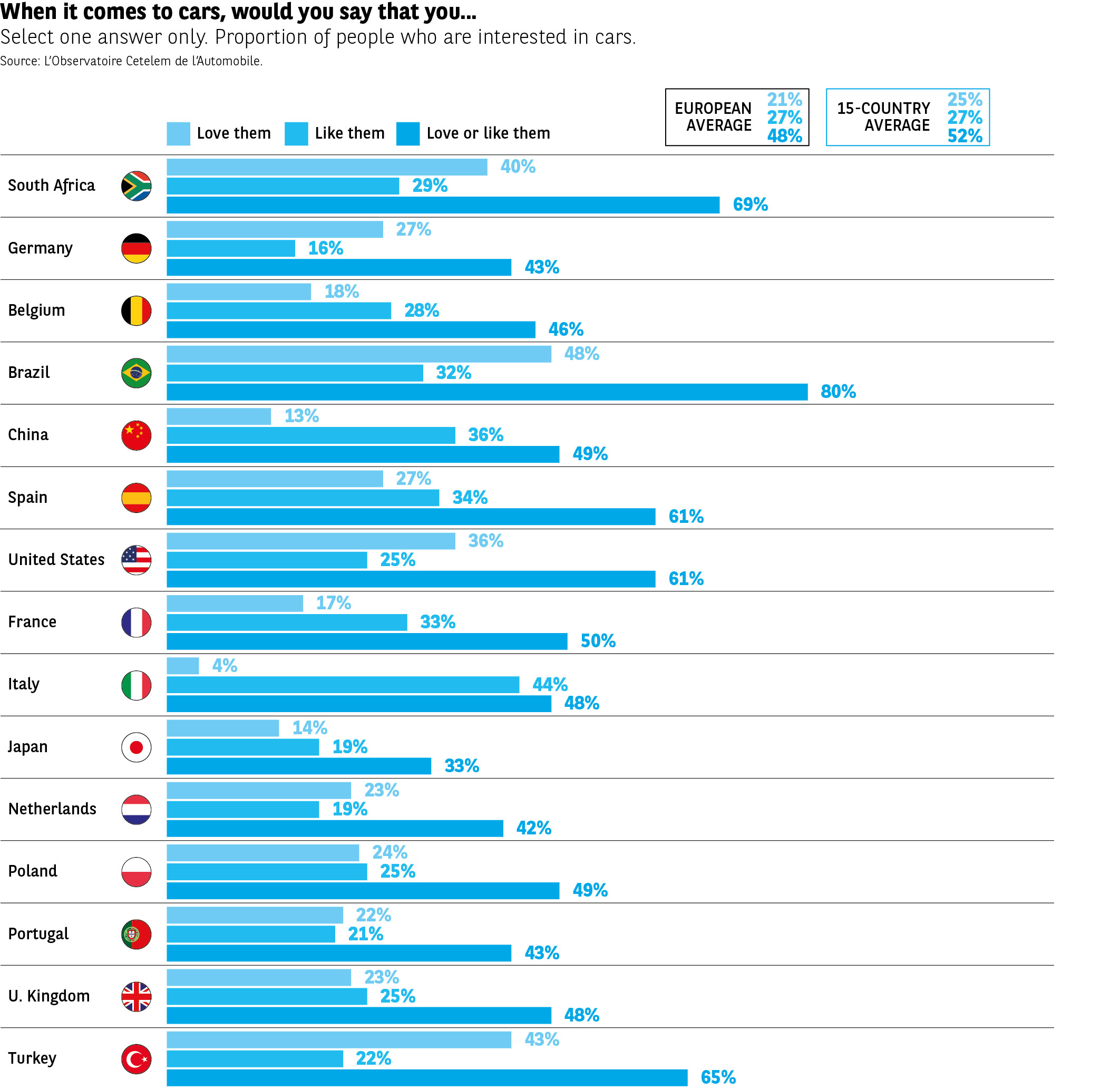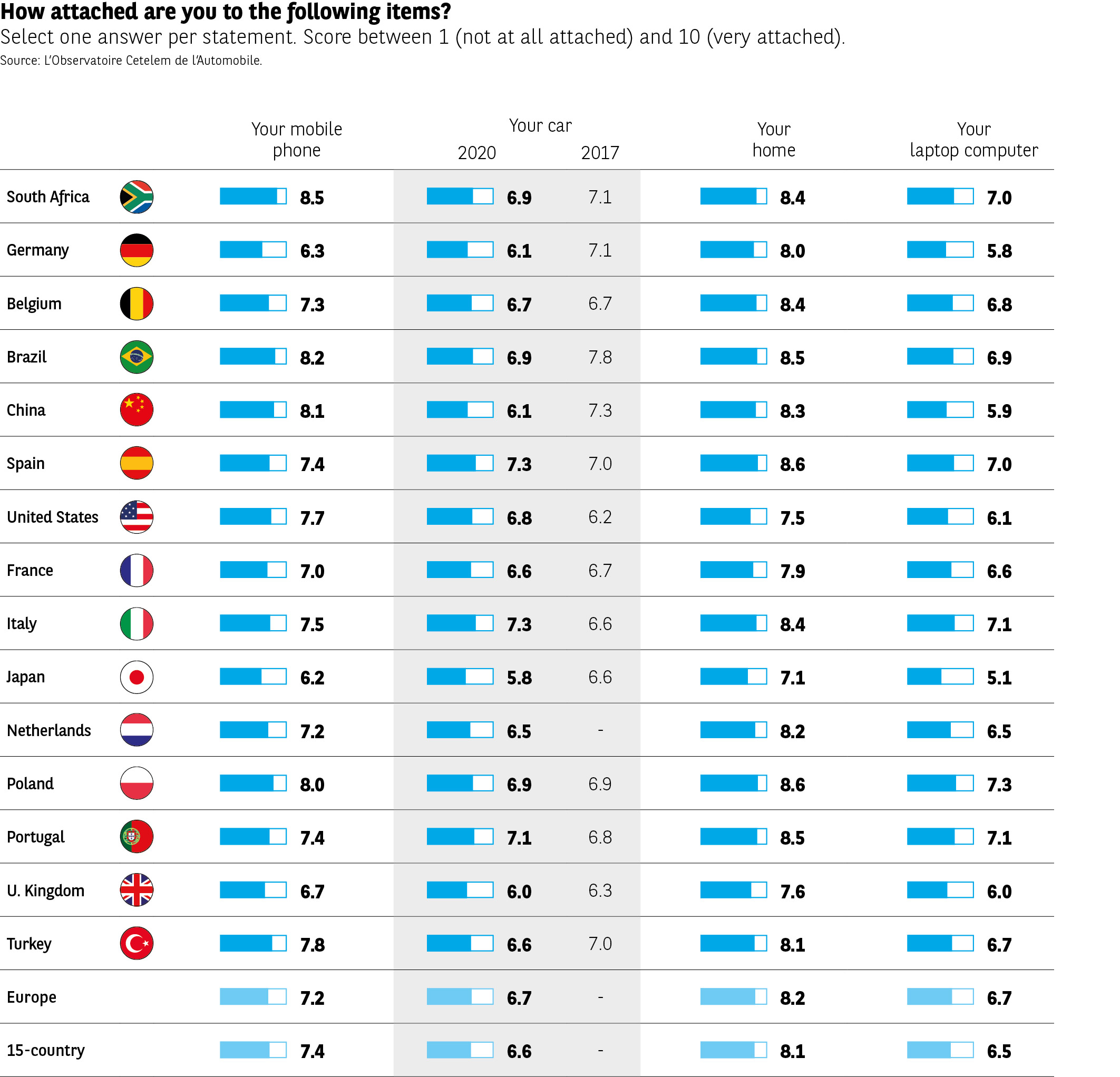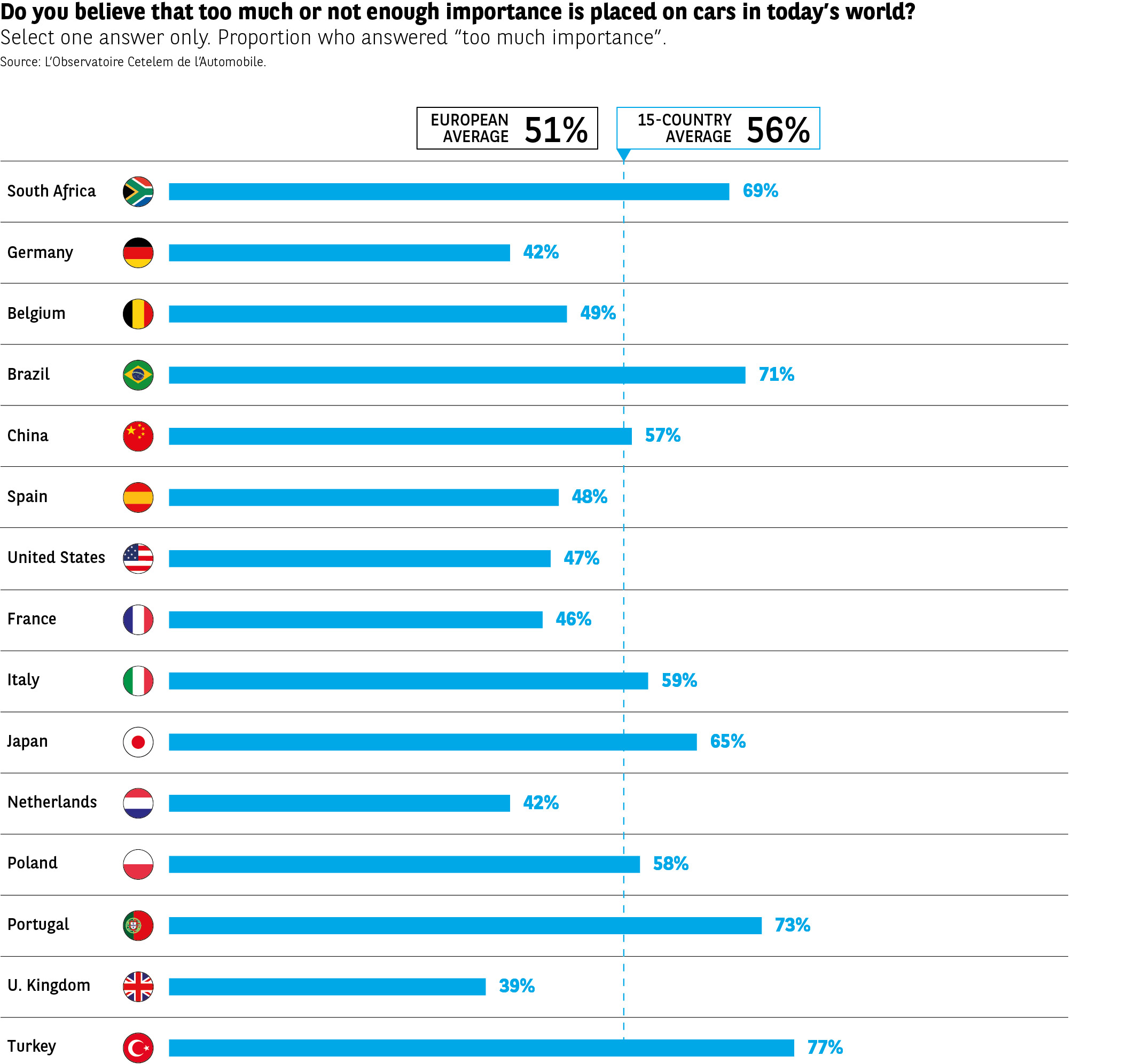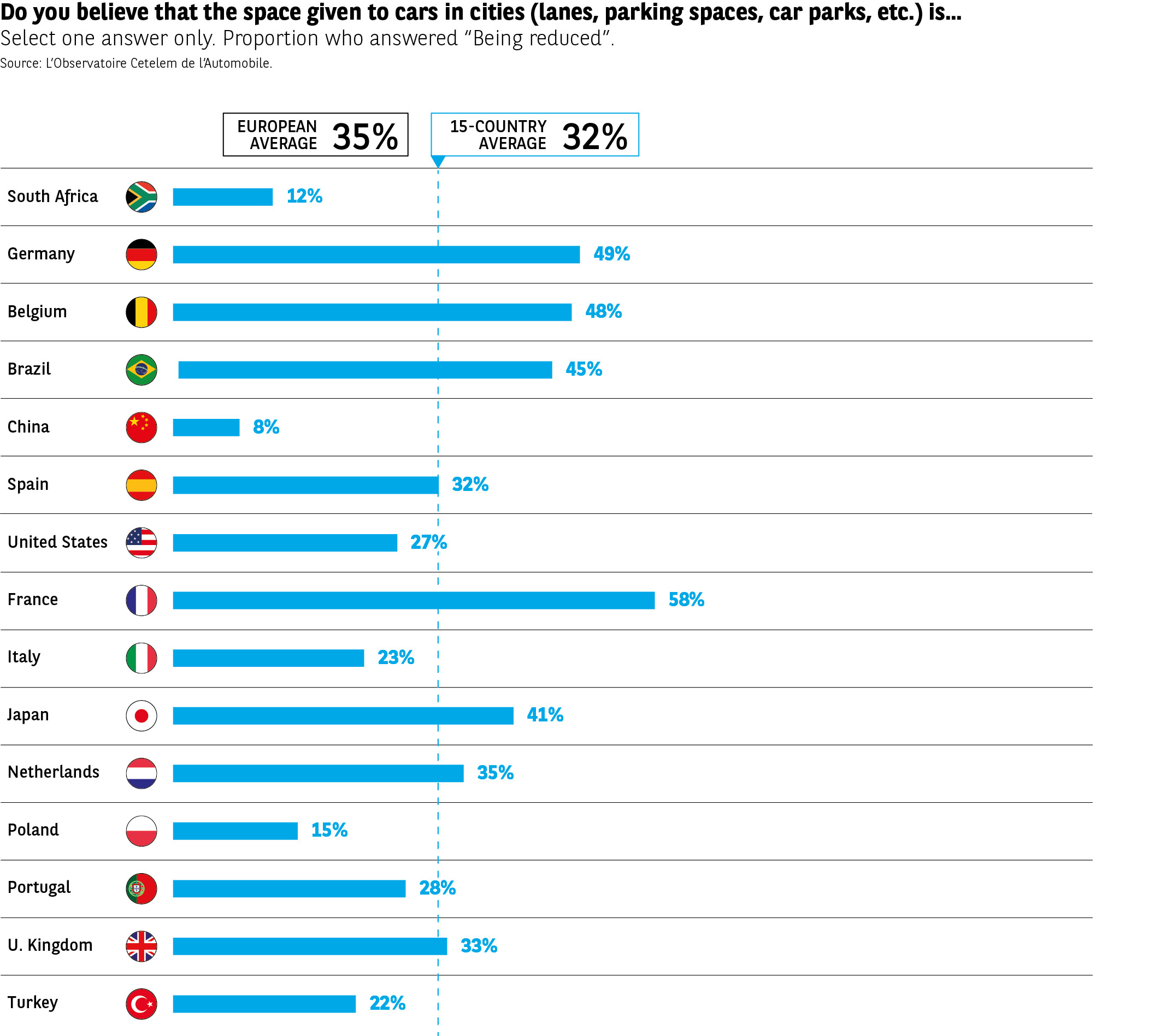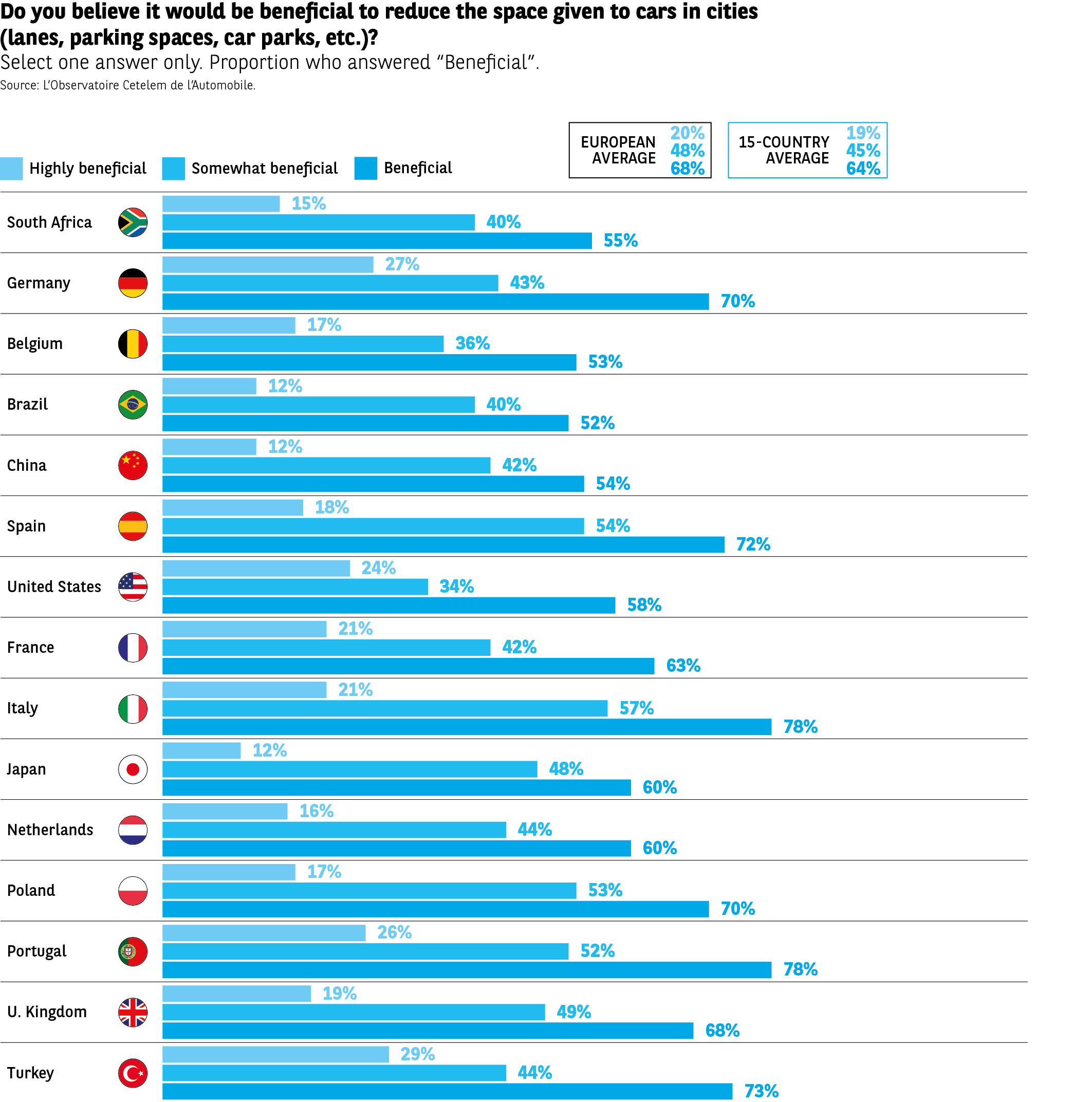An image tinged with caution
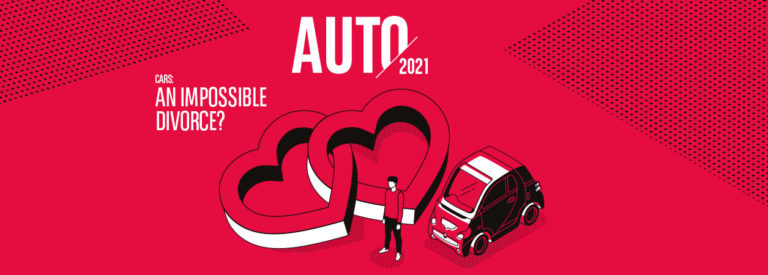

The sensible equal the enthusiastic in number: cars are not the stuff of dreams they once were
Although 1 in 2 people say they are interested in cars, this interest is more likely to be driven by reason than passion. Only a quarter of those surveyed say that they really love cars and motoring (Fig. 14). These enthusiasts are most likely to be found in Turkey, South Africa and Brazil (43%, 40% and 48%), countries conquered by motor vehicles relatively recently, but also in the United States, where the car is king (36%). Conversely, in China and Italy passions do not run as high. With only 4% declaring that they love cars, the Italians dispel the stereotype that they are passionate about beautiful mechanical creations. We should also underline that, overall, such passion has a price or, rather, is contingent on a high income. The most affluent households are almost twice as likely to describe themselves as car lovers than those with the lowest incomes (32% vs. 19%).
An enduring attachment
While cars may fuel fewer dreams today, our attachment to them is still relatively strong. This attachment has remained constant over time. In L’Observatoire Cetelem 2017 (“I love my car”), the average attachment score respondents assigned to cars was 6.7. Four years later, it is practically identical: 6.6 worldwide and 6.7 in Europe, with those in Latin countries being the fondest of their vehicles (Fig. 15). However, cars are no longer people’s “favourite”, as they were in the past. They are invariably surpassed by mobile phones, an inescapable, indispensable and unparalleled product in the modern world (8.1 worldwide, 8.2 in Europe). The income factor reveals a very clear disparity between the wealthy, who are very attached to their cars (7.4), and lower income individuals, whose attachment is weaker (5.9). The monetary and use value of a vehicle go some way to explaining this difference.
A status that is viewed as overblown in today’s world…
Are cars seeing their lustre fade? What is certain is that their relative status in an economic world that is shifting from the industrial to the digital is now seen as too high. More than 1 in 2 people are of this view, but the disparities are considerable. In the emerging countries, where the automotive market has gained importance more recently, but also in Portugal and Japan, its status is viewed as overblown, with 8 out of 10 Turks also being of this opinion (Fig. 16). Meanwhile, in those countries whose relationship with the automobile is longer standing, this view is less prevalent (39%, 42% and 46% in the United Kingdom, Germany and France). In the Netherlands, a figure of 42% highlights a reluctance to heap scorn on cars, even though they often play second fiddle to bicycles in the country.
… But which looks to be fading overall
While there is a belief that too much importance is placed on cars, they are slowly fading from the landscape in the eyes of those surveyed. In particular, one-third believe that their presence in cities is falling and that more space is being freed up through a reduction in the number of lanes, parking spaces and car parks (Fig. 17). On this issue, those countries in which Green parties have the most influence, both nationally and locally, are the most forthright. 6 out of 10 French citizens and 1 in 2 Germans and Belgians bear witness to a gradual exodus of vehicles from cities. Conversely, just 1 in 10 Chinese share this feeling. The congestion caused by vehicles in the megacities of the Middle Kingdom does not seem set to ease any time soon.
Germany, Belgium and France: the growing power of Green parties
The most recent European elections, much like France’s local elections, confirmed the rising popularity of Green parties and probably their long-term presence in the political landscape. This is particularly true in three countries of L’Observatoire Cetelem, which exhibit similar views on environmental issues. Thus, Belgian ecologists saw their representation increase by 50% in the last election, while in France the number of representatives doubled. In the latter, a number of major cities (including Lyon, Bordeaux and Grenoble) are now run by the Greens. In Germany, they have held positions of responsibility for several years now.
Fig. 18 / Context:
Download this infographic for your presentations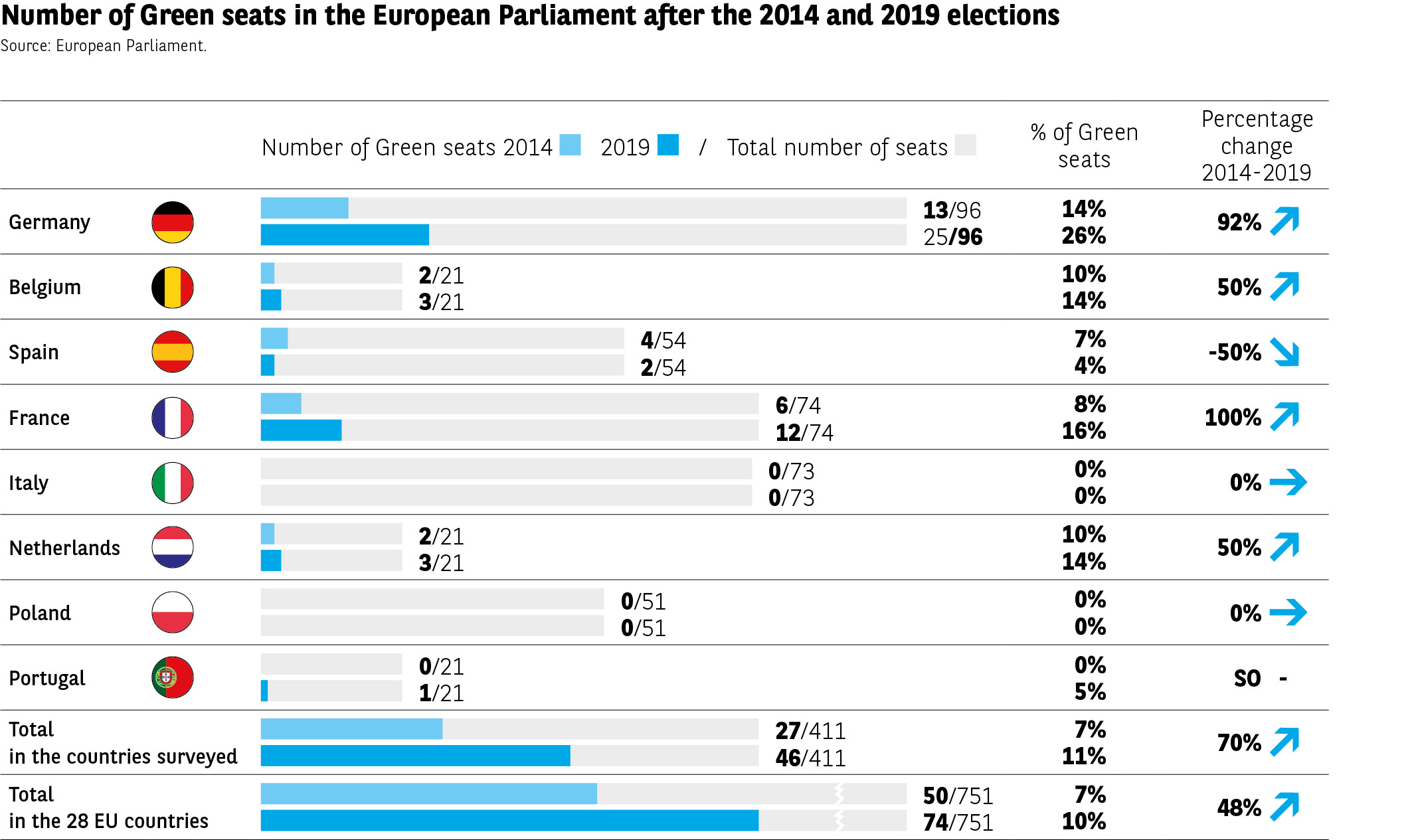
A desire for cars to have their status lowered further
Today, the view that cars have too much of a presence comes with the assumption that this presence will fall in the future. 64% of those surveyed (68% in Europe) believe it is desirable or highly desirable for the presence of cars in cities to be reduced, although this does not point to complete intransigeance on the matter (Fig. 19). Those who state that it is “highly desirable” account for just 19% of the total and tend to be at the higher end of the income spectrum.
This desirability varies from country to country. While the Italians, Portuguese, Spanish and Turks are the most likely to hold this view, the Brazilians, South Africans, Belgians and Americans are more measured.

